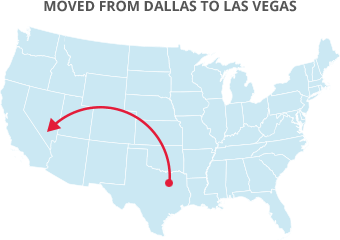
You’ve got a business to keep going. And now you have to keep it going while you’re moving it from one location to another! How do you keep your Tulsa business growing and the profits flowing while your furniture’s going out the door? That’s the essential question of office relocation! Give it a wrong answer, and your productivity and profits will go out the door with the furniture.
At A-1 Freeman Moving Group, we’ve got a correct answer for you – one that can help you bypass 8 mistakes that we, as
office relocation specialists, find all too often made:
- Not Planning Ahead. As soon as you know you’ve got to move, that’s when you should start planning for it. Sadly, too many companies begin their office relocation planning a little too late. Too late for what, you ask? Well, too late for moving companies and other suppliers to create a decent proposal for you, let alone properly deliver the goods and services you purchase from them. Keep in mind: too little time frequently leads to too many mistakes. Let the size of your company and the complexity of your move – i.e., the number of steps that must be completed before other steps can be begun – guide you in figuring out how soon is soon enough.
- Not Vetting Your Mover Thoroughly. Office relocations are demanding. You need a moving company that knows how to take care of office furniture and modular systems, computer systems and networking, office equipment, machinery, and hardware, cabling, phone systems, security systems, building permits, and ... that’s just contemplating, make sure they’re legitimate. Look at https://ai.fmcsa.dot.gove/hhg/search.asp to see, first of all, that they’re U.S. Department of Transportation (DOT) licensed and insured, particularly for interstate commerce. Check the reviews at bbb.org. to see if any grievances have been entered against them with the Better Business Bureau. And, if at all possible, consult with other businesses who’ve hired them to find out how well they lived up to their contractual duties. It’s also wise to inquire about their moving crews – whether they’re full-time employees or temps, whether they’ve been background checked and drug tested, and whether they follow standard chain-of-custody procedures.
- Not Coordinating and Communicating Sufficiently with Your Mover. Your office relocation manager is best advised to work with the project manager your moving company has alloted to see that your internal team and the moving company’s team are tracking together. Any [[changes in the schedule have to be properly relayed to all those involved, so that one upset doesn’t give rise to all sorts of errors and cost overruns.
 Not Assigning Enough Internal Staff to Your Move. The scope of any office relocation fairly decrees that you recruit the help of people from within your firm. Go for people in each department who grasp their department’s needs fully and have access to pertinent company records. That may not necessarily be the department head! To be honest, you’re often better off seeking the help of seasoned but non-managerial staffers, as they’re more likely to submit to your relocation manager’s dictates without argument.
Not Assigning Enough Internal Staff to Your Move. The scope of any office relocation fairly decrees that you recruit the help of people from within your firm. Go for people in each department who grasp their department’s needs fully and have access to pertinent company records. That may not necessarily be the department head! To be honest, you’re often better off seeking the help of seasoned but non-managerial staffers, as they’re more likely to submit to your relocation manager’s dictates without argument.- Not Following the Schedule. It’s seldom the case that an office relocation schedule slackens. Certainly, various stages can be derailed temporarily for this or that reason. But what usually happens then is that the schedule gets tightened. And that usually happens because the planning got put off until too late. And what happens when you attempt to make allowances for lost time? More people from your side and the mover’s side are stuck with more overtime hours. Everybody starts tripping over everybody else. Things get confusing. Mistakes are made. And who pays for all this? Yep. Better to create a pragmatic schedule from the get-go and stay with it.
- Not Budgeting Enough for Your Move. Admittedly, it’s not easy for any company that hasn’t been engaged in a relocation before to know exactly what its move will wind up costing. To leave that cost to chance, though, or to budget for it insufficiently is a huge mistake! Typically, you must figure in recurring real-estate costs, soft-dollar expenses for, say, employee relocation and training, capital expenses like new furniture and office equipment purchases, moving expenses, and consulting expenses for such things perhaps as interior design and engineering. The more of your requirements you explore in the beginning, the more governable the expense of your office relocation will be.
- Not Having Sufficient Coverage. If you’ve selected a professional relocation company of any reputation, the risk of property damage is slight. That said, you be prepared. Ask your mover about the coverage options they provide and pick the one that seems most right for your operations.
- Not Taking Care to Back Up Your Data. There’s no point in recounting horror stories here. Suffice it to say that while your office relocation is underway, your firm’s material records ought to be backed up digitally, wherever practicable. Those that can’t be digitized should be deposited securely in a warehouse. And your digital data ought to be backed up in the cloud. Historically, losing such data or suffering its destruction isn’t a frequent experience. But do you really want to risk it? Then, certainly, back it up!
A big way to eliminate these kinds of blunders – or to offset them effectively – is to employ a moving company that has a verifiable track record of successful office relocations. May we call your attention to A-1 Freeman Moving Group right here in Tulsa? Look up our bona fides as we suggest above. Then look over our
office relocation services and ...
Request a free quote



 You’ve got a business to keep going. And now you have to keep it going while you’re moving it from one location to another! How do you keep your Tulsa business growing and the profits flowing while your furniture’s going out the door? That’s the essential question of office relocation! Give it a wrong answer, and your productivity and profits will go out the door with the furniture.
You’ve got a business to keep going. And now you have to keep it going while you’re moving it from one location to another! How do you keep your Tulsa business growing and the profits flowing while your furniture’s going out the door? That’s the essential question of office relocation! Give it a wrong answer, and your productivity and profits will go out the door with the furniture. Not Assigning Enough Internal Staff to Your Move. The scope of any office relocation fairly decrees that you recruit the help of people from within your firm. Go for people in each department who grasp their department’s needs fully and have access to pertinent company records. That may not necessarily be the department head! To be honest, you’re often better off seeking the help of seasoned but non-managerial staffers, as they’re more likely to submit to your relocation manager’s dictates without argument.
Not Assigning Enough Internal Staff to Your Move. The scope of any office relocation fairly decrees that you recruit the help of people from within your firm. Go for people in each department who grasp their department’s needs fully and have access to pertinent company records. That may not necessarily be the department head! To be honest, you’re often better off seeking the help of seasoned but non-managerial staffers, as they’re more likely to submit to your relocation manager’s dictates without argument.